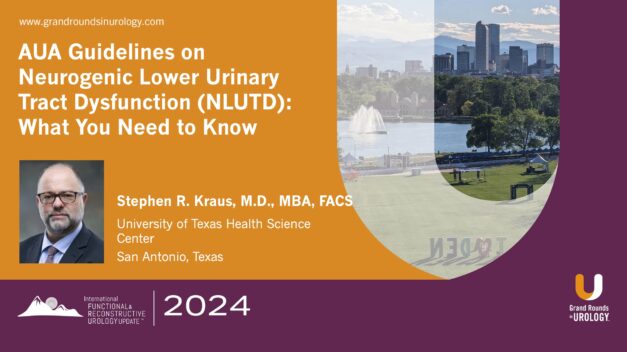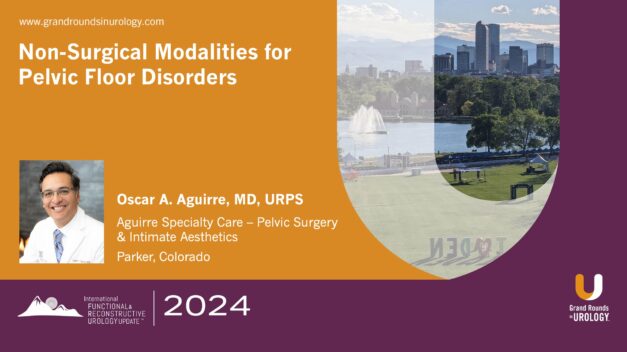AUA Guidelines on Neurogenic Lower Urinary Tract Dysfunction
Stephen R. Kraus, MD, MBA, FACS, reviews the updated neurogenic lower urinary tract dysfunction (N-LUTD) guidelines, previously known as neurogenic bladder guidelines. In this 10-minute talk, he notes that the redefined terminology reflects a more comprehensive approach, addressing both bladder and outlet dysfunction.
Kraus explains patients are classified into low, moderate, or high-risk categories based on factors like neurological disease and bladder function. The guidelines use these categories when recommending treatment. Dr. Kraus gives examples, illustrating how the guidelines provide individualized patient treatment. Further, he emphasizes that the guidelines highlight the importance of ongoing monitoring to ensure treatment efficacy and prevent complications in high-risk patients.
Read More




